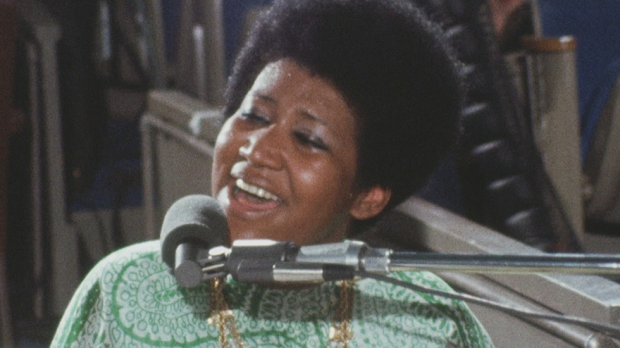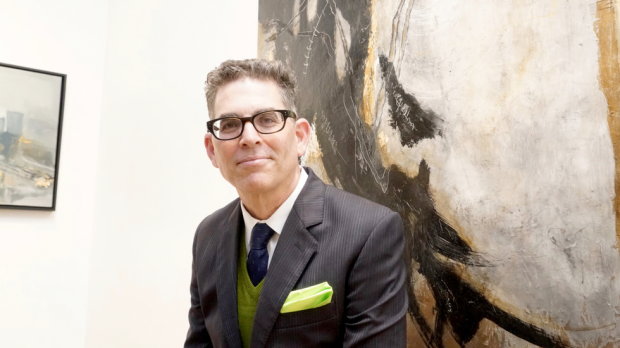
One of Aretha Franklin’s greatest albums, Amazing Grace, brought the Queen of Soul back to her gospel roots, yet a planned live film of that 1972 recording at a South Los Angeles church has somehow languished in a studio vault due to a technical error ever since. Now over four decades later we can finally see this restored film, synchronised with sound for the first time. DAVID O’CONNELL spoke with co-director Alan Elliott about bringing that footage back to life, and the legacy of Aretha Franklin’s Amazing Grace.

How did footage like this, come to languish in a vault, for all those decades?
Well, that’s a bad luck situation. Sydney Pollack (Out of Africa, 3 Days of the Condor, Tootsie), one of the great directors in the history of cinema, brought a crew (to the event) and somebody forgot to bring the clapper board. As you can see in the movie, there’s cameramen running around, turning the cameras on and off…and on and off…and you can never see a clapper board. I mean somebody must have said, “I will fix it when I get back to the editing facility,” but unless you’re talking about fixing it in 2018, that wasn’t going to be a reality in 1972.
So what they ended up with was, four cameras running around for four hours a night, turning cameras on and off, on and off. You’d end up with pieces of film, that you’d have to hang up those days with fishing line, with a paper-clip, and try and sync it up to a quarter inch tape machine. It’s insane, and no one’s been able to answer as to what they were thinking. They hired the choir director, Alexander Hamilton, to work with the film. He worked with them for a couple of months, and got about 10 to 15% of the film synced, but not one whole song. So they just sheepishly gave it away, and 46 years later, the guy that was seven years old at the time, came along, found it, and fixed it.
Could you explain the relevance of Amazing Grace as an album?
Aretha Franklin had had 11 or 13 number one records in a row at that point in her life, but the music world was changing. By 1972 Warner Music Group and Atlantic Records had changed from being an R&B label to being the label of The Rolling Stones, the label of Yes, and the label of Emerson, Lake & Palmer. These were acts that made double albums, and long songs. Aretha Franklin takes all of her energy and decides to make a double album her way; a double album with a 17 minute version of Amazing Grace. And I think her challenging these market forces was her way of saying I’m just as relevant as anyone else here.
She turned the world into a church. It’s a record that has no hit singles but it’s her biggest selling album. And this is rhythm and gospel. Especially in the African American world, Amazing Grace is what Sgt. Pepper’s (Lonely Heart Club Band) is for Beatles fans.
It’s the first time I’ve seen her look concerned (before launching into the first song). It’s amazing footage.
At times it turns into that ability to transcend. (She) turns fragility into something that should be etched on a mountain top. She becomes a pillar of strength during the recording. She’s also one of the first female record producers, the first black woman to be a record producer and the first artist to produce. And she’s there to deliver a church service, which goes back to when she was eight years old, with a friend and her band, and she’s aware of this dual need. There’s a duality to her focus. But also the personal. When her father comes in, she’s 12 years old again. The camera doesn’t lie about that stuff.
Well, as you show at the end of night one, she’s drenched in sweat, almost on the verge of physical collapse, and she’s still delivering an incredible performance.
She’s leaving all of her energy at the pulpit. It’s a thing to watch on so many different levels.
You’ve obviously made a conscious decisions not to have talking heads, and just let the footage and (more importantly) the songs speak for themselves. What prompted that decision?
The good thing about putting in your own money into a movie, is you can make whatever movie you want to make. I grew up around that neighbourhood at that time, and I was determined to look at my childhood, and have that be the basis of the film. So I don’t want to leave the church, I don’t want to leave the room. We’ve all seen those documentaries with; verse, chorus, verse, chorus…let’s cut to a talking head of the African American Film Studies Department, and he’ll tell us how important this was, then cut to Quincy Jones telling us how remarkable she was.
I have so much faith in that music, and those performances, that I want everyone else to be in on that experience. I remember that record from when I was eight years old, and there was such a profound energy that was captured on this film. You’ll notice in the film, they’re very long takes. I want us all to sit there, I want to watch Aretha, I want us to watch the choir, and be there. I said to the editor, “stay…just stay there,” and it was a mantra. To be in that moment. Let’s be in the room. Let’s have that experience.